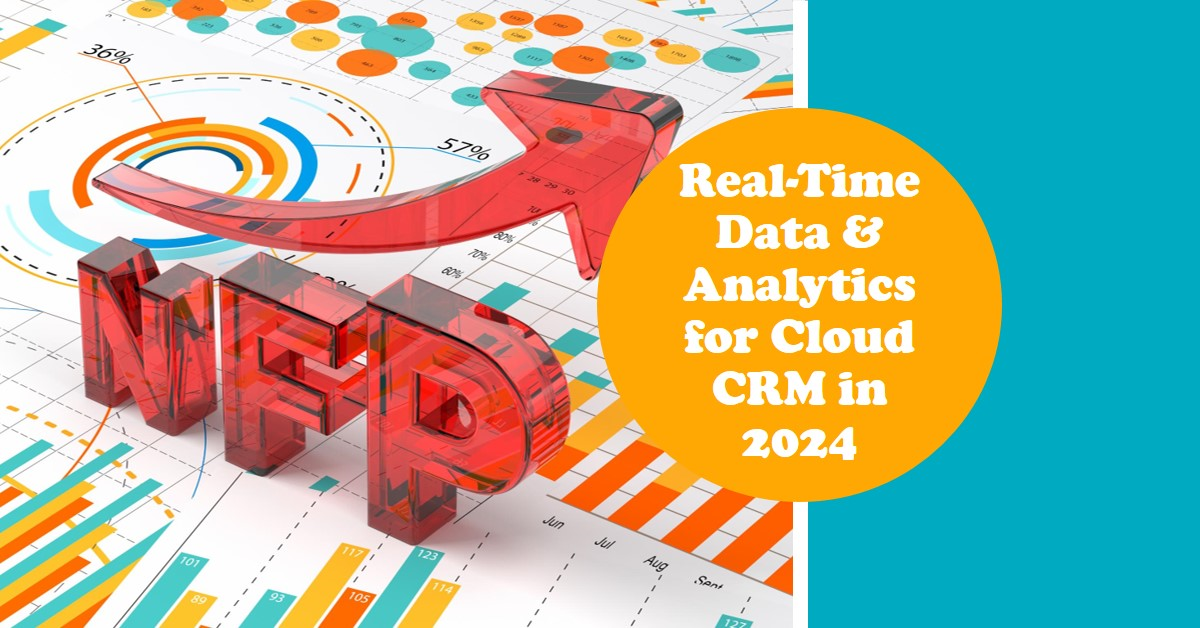
In the fast-evolving landscape of customer relationship management (CRM), the integration of cloud computing has revolutionized how businesses manage and analyze customer data. As we move through 2024, the capability of CRM systems to harness real-time customer data and analytics has become a pivotal component for achieving enhanced customer interactions and operational efficiencies. This transformation is largely driven by advancements in cloud technology, offering robust, scalable, and agile solutions that empower CRM systems to deliver unprecedented value to businesses.
The Impact of Cloud Computing on CRM Systems
Enhanced Data Accessibility and Integration
Cloud computing has transformed the data architecture of CRM systems, making it more fluid and accessible. With cloud-based CRM solutions, businesses can seamlessly integrate various data sources, whether internal or external, ensuring a holistic view of customer interactions across all touchpoints. This integration is vital as it allows for real-time data collection and updates, providing businesses with up-to-the-minute insights about customer behaviors and preferences.
According to a 2024 report by Gartner, companies using cloud-based CRM systems have seen a 35% improvement in data access efficiency, highlighting the significant impact of cloud integration on operational agility and customer service responsiveness.
Real-Time Analytics and Decision Making
One of the standout features of cloud computing is its capacity to facilitate real-time analytics. CRM systems powered by the cloud can process and analyze large volumes of data instantly, enabling businesses to make informed decisions swiftly. This real-time processing is crucial for dynamic industries such as retail and services, where understanding customer needs promptly can translate into successful outcomes.
A study conducted by Forbes in 2024 revealed that 60% of enterprises that adopted cloud-based CRM solutions reported substantial improvements in decision-making speed and accuracy, thanks to the real-time analytics capabilities of their CRM systems.
Scalability and Cost-Effectiveness
Cloud computing offers scalable options for CRM systems, allowing businesses to adjust resources based on their needs without significant upfront investments. This scalability not only supports business growth but also ensures that CRM systems are cost-effective over time.
Research by IDC indicates that companies utilizing cloud-enabled CRM systems have reduced their operational costs by up to 50%, primarily due to the scalability and maintenance efficiencies provided by the cloud.
Security and Compliance Enhancements
As CRM systems contain sensitive customer information, security remains a top priority. Cloud providers invest heavily in security technologies and protocols to protect data against breaches and cyber threats. Moreover, cloud-based CRM systems are designed to comply with various regulatory standards, ensuring that businesses meet legal requirements related to data security and privacy.
How P99Soft Can Enhance CRM Systems with Cloud Operations
P99Soft, with its expertise in cloud operations and media & entertainment, offers specialized services that enhance the functionality of CRM systems. By leveraging cutting-edge cloud solutions, P99Soft ensures that CRM systems are not only robust and secure but also tailored to manage the vast data requirements of the media and entertainment industries. This specialization is crucial as it enables businesses to handle large-scale data operations efficiently, ensuring that customer engagements are both personalized and impactful.
FAQs About Cloud Computing and CRM Systems
Q1: How does cloud computing improve customer service in CRM systems? A1: Cloud computing enhances CRM systems by providing real-time access to customer data, which enables faster and more accurate customer service responses.
Q2: What are the risks associated with cloud-based CRM systems? A2: While cloud-based CRM systems offer numerous benefits, they also pose risks such as data breaches and internet dependency. However, with robust security measures, these risks can be mitigated.
Q3: Can small businesses benefit from cloud-based CRM systems? A3: Absolutely, cloud-based CRM systems offer scalability and cost-effectiveness, making them ideal for small businesses looking to expand their customer management capabilities without heavy investments.
Q4: How does real-time analytics in CRM systems affect marketing strategies? A4: Real-time analytics allow businesses to adjust their marketing strategies based on current customer data and trends, leading to more targeted and effective marketing campaigns.
Q5: What future trends are expected in cloud computing for CRM systems? A5: Future trends include the integration of AI and machine learning for predictive analytics, enhanced data security measures, and the use of blockchain technology for improved data transparency and integrity.
Conclusion
As we look towards the future, the integration of cloud computing into CRM systems is undoubtedly setting a new standard for how businesses interact with their customers. The real-time data processing and analytics provided by the cloud are not only improving customer experiences but also driving significant business growth and operational efficiency. Companies like P99Soft are at the forefront of this transformation, offering tailored cloud solutions that enrich CRM capabilities, especially in sectors like media and entertainment.
As businesses continue to navigate the complexities of customer relationships, how will they further innovate to stay ahead in this data-driven era?
Also know Custom CRM for SMBs in Logistics – P99Soft
























One thought on “Cloud CRM in 2024: Real-Time Data & Analytics”